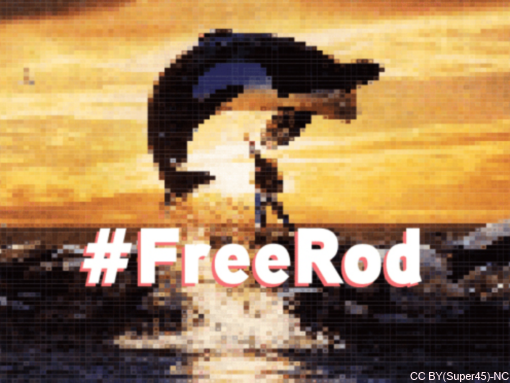On the parody on Twitter: lessons to learn
by Digital Rights LAC on July 17, 2013
A powerful Chilean industralist sued for identity theft to a Twitter user. Months later, after extensive public controversy, the case was definitively dismissed. In the light of the behavior of the police and the companies involved, it is time to review the lessons learned.
By Daniel Álvarez, NGO Derechos Digitales.
On February 18, 2012, Rodrigo Ferrari, Chilean Twitter user, was formalized by the Public Prosecutor on suspicion of the crime of usurpation of the name of Andronico Luksic, Chilean industralist and one of the richest men in the world, which allegedly committed by the accounts @losluksic, @andronicoluksic and @luksicandronico.
In the formal indictment hearing, the then Prosecutor specializing in complex crimes, Marco Antonio Mercado, accused Ferrari as a perpetrator of the crime to be punished under Article 214 of the Penal Code, as an author and as head of the three accounts specified.
Mercado based its decision on the records that would have met the Police Department for over a year and a half of errands, including: covert surveillance measures, Ferrari’s personal information illegally obtained from databases of internet services providers, and information provided by Twitter regarding that accounts, which were delivered by this U.S. company though absence of a legal warrant authorizing it. With that information, the Police Department issued a report linking -wrongly and without any backup history- Ferrari with the three investigated accounts.
Since the hearing formalization, Rodrigo Ferrari claimed in its defense that it was only responsible for the account @losluksic, which would have created with the sole intention of parody to one of the richest families in Chile, an issue that anyone could quickly identify to read, for example, humorous or satirical tone of the messages, or main picture has dollars falling from the sky.
The parody argument was central at the moment of decreed the definitive closure of the accusation by the Judge Carla Capello, who said:
“(..) Clearly, the content of that account is satire and irony, and also is not satisfied with the requirement of subjective mood to arrogate as its own the name of Andronico Luksic (…), understanding that the facts did not constitute a crime. “
Regarding the other accounts (@andronicoluksic and @luksicandronico), an expert opinion prepared by Professor Patricio Poblete, director of the School of Engineering of the University of Chile and one of the pioneers of Internet in Chile, said there was no any antecedent on the information provided by the company Twitter linking to Ferrari with its creation and administration, and that the findings reported by the Police Department were erroneous and unfounded.
Finally, Rodrigo Ferrari was acquitted of the crime charged, because to its decision to confront and contest the charges in court, without yielding to the pressures to try to obtain agreement or a conditional suspension, as had been the practice of the Public Prosecutor’s office in other investigations relating to the use of parody on Twitter. This happened, for instance in the case of the account @caradeorrego, which satirized the then Peñalolen’s mayor and later presidential candidate, Claudio Orrego, whose author was formalized and subjected to conditional suspension.
With its closure, the case of @ losluksic left us several lessons to learn and some positive conclusions:
ONE. Parody on the Internet constitutes a legitimate exercise of the right to freedom of expression and can not be successfully attacked in court through the legal entities such as usurpation of name. The correct interpretation of the provisions of the Criminal Code and also the constitutional provisions regarding freedom of expression protects and promotes it.
TWO. Judicial and police investigations must observe, at all times, the constitutional norms on due process and protection of privacy of individuals. It is not tolerable in a democratic rule of law, the police and the Public Prosecutor accessing personal information without specific prior court order authorizing them.
THREE. Telecommunications companies should oppose, in any case, to share their customers’ personal information, without a prior and specific court order. Otherwise, they should face penalties or fines and, eventually, must respond for prejudice that they caused. In a similar sense, Twitter should apply the same standard used for the protection of the rights of their users located in the United States and other developed countries, to those living in developing countries or, straight out, in the third world.
FOUR. The defense of human rights on the Internet requires positive action. It is necessary that the police, prosecutors and the courts being constantly trained about the scope of fundamental rights in the digital environment, given the increasing importance that they have acquired in recent decades.
Daniel Álvarez is legal director at NGO Derechos Digitales
E-mail: daniel (at) derechosdigitales.org






